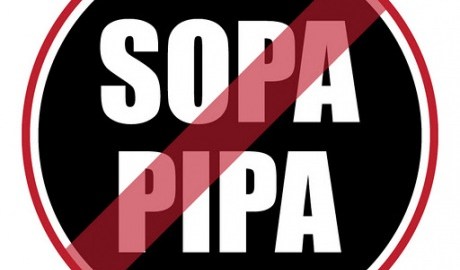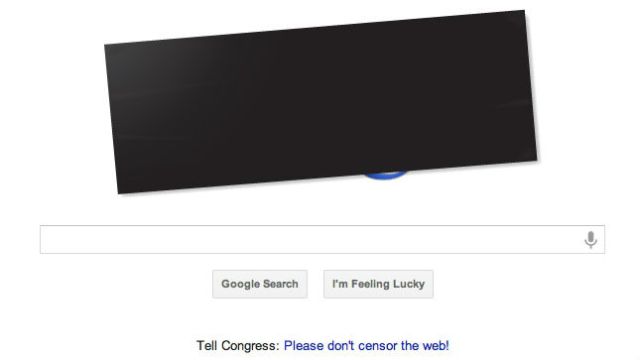Does Internet Piracy Really Hurt the Economy?

Large swathes of the Internet today are protesting legislation now pending in Congress that would censor the Internet and burden many sites with impossible-to-meet regulatory demands. What’s the rationale behind enormously meddlesome regulations like SOPA/PIPA? Among others reasons, the “piracy” of copyrighted material is alleged to damage the economy. Julian Sanchez of the Cato Institute has completely dismantled this allegation in two outstanding recent posts. In his latest, he points out that, content-industry wailing notwithstanding, the movie and music industries are doing pretty damn well:
The International Intellectual Property Alliance—a kind of meta-trade association for all the content industries, and a zealous prophet of the piracy apocalypse, released a report back in November meant to establish that copyright industries are so economically valuable that they merit more vigorous government protection. But it actually paints a picture of industries that, far from being “killed” by piracy, are already weathering a harsh economic climate better than most, and have far outperformed the overall U.S. economy through the current recession. The “core copyright industries” have, unsurprisingly, shed some jobs over the past few years, but again, compared with the rest of the economy, employment seems to have held relatively stable at a time when you might expect cash-strapped consumers to be turning to piracy to save money.
In his previous post, Sanchez exposes content-industry estimates of huge economic loss as dishonest confabulation, and digs toward find a more realistic accounting of the overall economic costs of piracy:
[I]n a fantasy world where U.S. movie pirates don’t just circumvent blockage with a browser plugin, and SOPA actually stops all online movie piracy by American users, we get a $446 million economic benefit to the United States in the form of movie revenues, and presumably comparable benefits in music and software revenues? Well, no. Remember our old friend the Broken Window Fallacy. It’s true that some illicit U.S. downloads displace sales of legal products. But what happens to the money the pirates would have otherwise spent on those legal copies? They don’t eat it! As that same GAO report helpfully points out:
(1) in the case that the counterfeit good has similar quality to the original, consumers have extra disposable income from purchasing a less expensive good, and (2) the extra disposable income goes back to the U.S. economy, as consumers can spend it on other goods and services.
As one expert consulted by GAO put it, “effects of piracy within the United States are mainly redistributions within the economy for other purposes and that they should not be considered as a loss to the overall economy.” In many cases—I’ve seen research suggesting it’s about 80 percent for music—a U.S. consumer would not have otherwise purchased an illicitly downloaded song or movie if piracy were not an option. Here, the result is actually pure consumer surplus: The downloader enjoys the benefit, and the producer loses nothing. In the other 20 percent of cases, the result is a loss to the content industry, but not a let loss to the economy, since the money just ends up being spent elsewhere. If you’re concerned about the overall jobs picture, as opposed to the fortunes of a specific industry, there is no good reason to think eliminating piracy by U.S. users would yield any jobs on net, though it might help boost employment in copyright-intensive sectors. (Oh, and that business about 19 million jobs? Also bogus.)
Censoring the Internet would be the wrong way to protect intellectual property rights even were piracy a big economic problem. But piracy has a negligible impact on the economy and mostly affects who gets what. Though some struggling musicians and writers are undoubtedly harmed by illegal filesharing, it seems likely to me that the net distributive upshot of illegal filesharing is progressive, from large, profitable corporations to ordinary consumers. There’s no evidence I’m aware of that supports the idea that piracy has led to an overall decline in the incentive to creative production. My bottom line: SOPA/PIPA is wrong and would mean the end of the open Internet we know and love. If it weren’t wrong, it would remain an attempt to solve a largely nonexistent problem. And even if stronger copyright protections would significantly help our economy, this legislation wouldn’t actually do that.
If you like, contact your legislators now.





